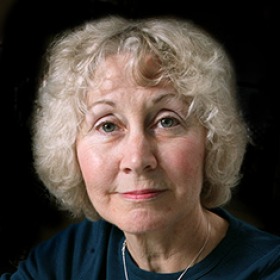
Diane C Robertson
Plants, like animals, begin life as a single cell, the fertilized egg or zygote. This single cell undergoes growth, cell division and differentiation to produce an embryo, or immature plant. This developmental process is called embryogenesis. Since all cells of the embryo are produced through mitotic divisions from the zygote, all cells should have the same genetic make-up. Yet these genetically identical cells ultimately differentiate into different cell types, organs and tissues. The unanswered questions of development, then, concern how gene expression is altered to produce different cell and tissue types, at different times during development and at different places within the organism. Somatic embryos, ones produced from somatic or body cells of a plant rather than from a zygote, provide a useful system in which to study the process of gene expression because they can be produced in abundance in tissue culture. My work involves characterizing the regulation of certain embryonic genes during the development of somatic embryos of carrot by examining factors (i.e. hormones, light, desiccation) that alter their expression. This, in turn, may provide information regarding the function of these genes during embryogenesis and begin to answer some of the long-standing questions of plant development.
Education and Degrees
Ph.D. 1972, University of California, Berkeley Postdoctoral Associate, 1973-1977, Ohio Agricultural Research & Development Center
